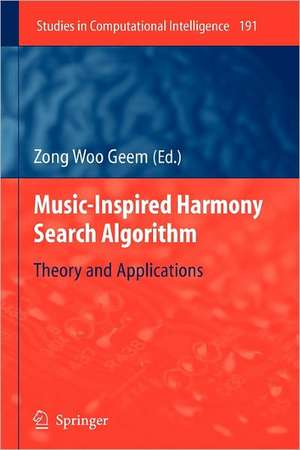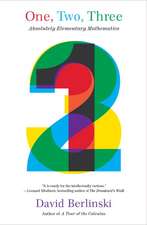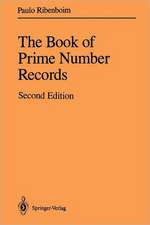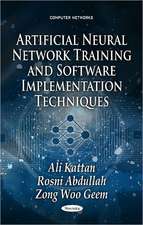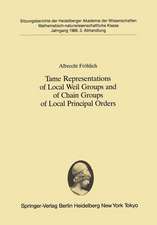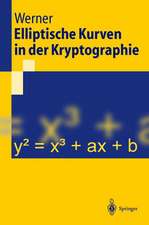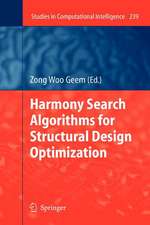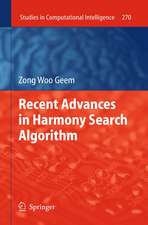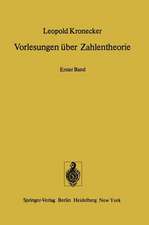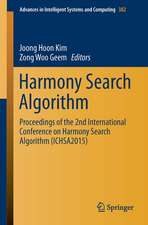Music-Inspired Harmony Search Algorithm: Theory and Applications: Studies in Computational Intelligence, cartea 191
Editat de Zong Woo Geemen Limba Engleză Paperback – 28 oct 2010
This book especially focuses on a music-inspired metaheuristic algorithm, harmony search. Interestingly, there exists an analogy between music and optimization: each musical instrument corresponds to each decision variable; musical note corresponds to variable value; and harmony corresponds to solution vector. Just like musicians in Jazz improvisation play notes randomly or based on experiences in order to find fantastic harmony, variables in the harmony search algorithm have random values or previously-memorized good values in order to find optimal solution.
| Toate formatele și edițiile | Preț | Express |
|---|---|---|
| Paperback (1) | 636.45 lei 6-8 săpt. | |
| Springer Berlin, Heidelberg – 28 oct 2010 | 636.45 lei 6-8 săpt. | |
| Hardback (1) | 642.68 lei 6-8 săpt. | |
| Springer Berlin, Heidelberg – 12 mai 2009 | 642.68 lei 6-8 săpt. |
Din seria Studies in Computational Intelligence
- 20%
 Preț: 449.37 lei
Preț: 449.37 lei - 20%
 Preț: 1158.26 lei
Preț: 1158.26 lei - 20%
 Preț: 986.66 lei
Preț: 986.66 lei - 20%
 Preț: 1452.76 lei
Preț: 1452.76 lei - 20%
 Preț: 168.78 lei
Preț: 168.78 lei - 18%
 Preț: 1112.30 lei
Preț: 1112.30 lei - 20%
 Preț: 565.38 lei
Preț: 565.38 lei - 20%
 Preț: 649.28 lei
Preț: 649.28 lei - 20%
 Preț: 1047.73 lei
Preț: 1047.73 lei - 20%
 Preț: 1578.96 lei
Preț: 1578.96 lei - 20%
 Preț: 643.50 lei
Preț: 643.50 lei - 20%
 Preț: 657.49 lei
Preț: 657.49 lei - 20%
 Preț: 993.28 lei
Preț: 993.28 lei - 20%
 Preț: 990.80 lei
Preț: 990.80 lei - 20%
 Preț: 989.96 lei
Preț: 989.96 lei - 20%
 Preț: 1165.69 lei
Preț: 1165.69 lei - 20%
 Preț: 1444.52 lei
Preț: 1444.52 lei - 20%
 Preț: 1041.96 lei
Preț: 1041.96 lei - 20%
 Preț: 1047.73 lei
Preț: 1047.73 lei - 20%
 Preț: 1046.06 lei
Preț: 1046.06 lei - 18%
 Preț: 2500.50 lei
Preț: 2500.50 lei - 20%
 Preț: 989.13 lei
Preț: 989.13 lei - 20%
 Preț: 1165.69 lei
Preț: 1165.69 lei - 20%
 Preț: 1164.05 lei
Preț: 1164.05 lei - 20%
 Preț: 1042.79 lei
Preț: 1042.79 lei - 20%
 Preț: 1460.19 lei
Preț: 1460.19 lei - 18%
 Preț: 1403.52 lei
Preț: 1403.52 lei - 18%
 Preț: 1124.92 lei
Preț: 1124.92 lei - 20%
 Preț: 1039.47 lei
Preț: 1039.47 lei - 20%
 Preț: 1008.11 lei
Preț: 1008.11 lei - 20%
 Preț: 1045.25 lei
Preț: 1045.25 lei - 20%
 Preț: 1275.42 lei
Preț: 1275.42 lei - 20%
 Preț: 1040.32 lei
Preț: 1040.32 lei - 20%
 Preț: 988.32 lei
Preț: 988.32 lei - 20%
 Preț: 1169.79 lei
Preț: 1169.79 lei - 20%
 Preț: 1162.37 lei
Preț: 1162.37 lei - 20%
 Preț: 1059.26 lei
Preț: 1059.26 lei - 20%
 Preț: 1164.05 lei
Preț: 1164.05 lei - 20%
 Preț: 1166.52 lei
Preț: 1166.52 lei - 20%
 Preț: 1459.38 lei
Preț: 1459.38 lei - 18%
 Preț: 1005.74 lei
Preț: 1005.74 lei - 20%
 Preț: 997.38 lei
Preț: 997.38 lei - 20%
 Preț: 1055.94 lei
Preț: 1055.94 lei - 20%
 Preț: 1284.47 lei
Preț: 1284.47 lei - 20%
 Preț: 994.08 lei
Preț: 994.08 lei - 20%
 Preț: 1048.72 lei
Preț: 1048.72 lei - 20%
 Preț: 1066.02 lei
Preț: 1066.02 lei - 20%
 Preț: 943.78 lei
Preț: 943.78 lei - 20%
 Preț: 1173.10 lei
Preț: 1173.10 lei - 20%
 Preț: 1457.72 lei
Preț: 1457.72 lei
Preț: 636.45 lei
Preț vechi: 748.76 lei
-15% Nou
Puncte Express: 955
Preț estimativ în valută:
121.80€ • 126.20$ • 101.65£
121.80€ • 126.20$ • 101.65£
Carte tipărită la comandă
Livrare economică 21 martie-04 aprilie
Preluare comenzi: 021 569.72.76
Specificații
ISBN-13: 9783642101243
ISBN-10: 3642101240
Pagini: 216
Ilustrații: X, 206 p.
Dimensiuni: 155 x 235 x 11 mm
Greutate: 0.31 kg
Ediția:Softcover reprint of hardcover 1st ed. 2009
Editura: Springer Berlin, Heidelberg
Colecția Springer
Seria Studies in Computational Intelligence
Locul publicării:Berlin, Heidelberg, Germany
ISBN-10: 3642101240
Pagini: 216
Ilustrații: X, 206 p.
Dimensiuni: 155 x 235 x 11 mm
Greutate: 0.31 kg
Ediția:Softcover reprint of hardcover 1st ed. 2009
Editura: Springer Berlin, Heidelberg
Colecția Springer
Seria Studies in Computational Intelligence
Locul publicării:Berlin, Heidelberg, Germany
Public țintă
ResearchCuprins
Harmony Search as a Metaheuristic Algorithm.- Overview of Applications and Developments in the Harmony Search Algorithm.- Harmony Search Methods for Multi-modal and Constrained Optimization.- Solving NP-Complete Problems by Harmony Search.- Harmony Search Applications in Mechanical, Chemical and Electrical Engineering.- Optimum Design of Steel Skeleton Structures.- Harmony Search Algorithms for Water and Environmental Systems.- Identification of Groundwater Parameter Structure Using Harmony Search Algorithm.- Modified Harmony Methods for Slope Stability Problems.- Harmony Search Algorithm for Transport Energy Demand Modeling.- Sound Classification in Hearing Aids by the Harmony Search Algorithm.- Harmony Search in Therapeutic Medical Physics.
Textul de pe ultima copertă
Calculus has been used in solving many scientific and engineering problems. For optimization problems, however, the differential calculus technique sometimes has a drawback when the objective function is step-wise, discontinuous, or multi-modal, or when decision variables are discrete rather than continuous. Thus, researchers have recently turned their interests into metaheuristic algorithms that have been inspired by natural phenomena such as evolution, animal behavior, or metallic annealing.
This book especially focuses on a music-inspired metaheuristic algorithm, harmony search. Interestingly, there exists an analogy between music and optimization: each musical instrument corresponds to each decision variable; musical note corresponds to variable value; and harmony corresponds to solution vector. Just like musicians in Jazz improvisation play notes randomly or based on experiences in order to find fantastic harmony, variables in the harmony search algorithm have random values or previously-memorized good values in order to find optimal solution.
This book especially focuses on a music-inspired metaheuristic algorithm, harmony search. Interestingly, there exists an analogy between music and optimization: each musical instrument corresponds to each decision variable; musical note corresponds to variable value; and harmony corresponds to solution vector. Just like musicians in Jazz improvisation play notes randomly or based on experiences in order to find fantastic harmony, variables in the harmony search algorithm have random values or previously-memorized good values in order to find optimal solution.
Caracteristici
Puts together for the first time theoretical backgrounds and practical applications of harmony search algorithms Includes supplementary material: sn.pub/extras
